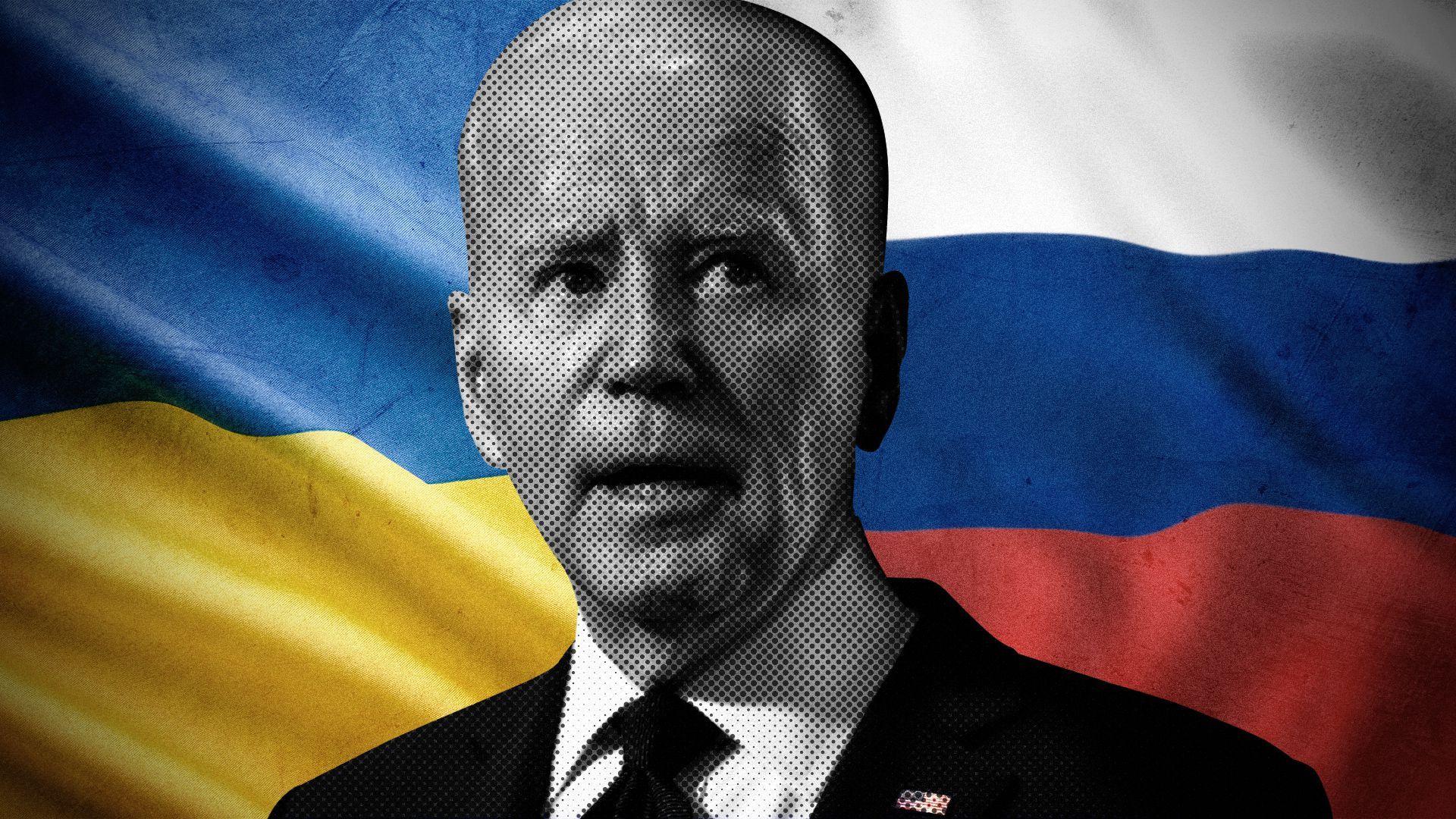Biden boxed in on Ukraine
Add Axios as your preferred source to
see more of our stories on Google.

Photo illustration: Aïda Amer/Axios. Photo: Eric Lee/Bloomberg via Getty Images
The Biden administration is pushing to get Congress, Europe and Ukraine on the same page as it tries to deter Russia from invading Ukraine — all while knowing that the decisive factor will ultimately be the whims of Vladimir Putin.
Why it matters: Officials from virtually all sides are warning that the risk of a large-scale, conventional war on the European continent is greater than at any time since the collapse of the Soviet Union. Few agree on how to stop it.
- The White House is attempting to project strength while keeping the option of diplomacy open; to lead while remaining in lockstep with European allies; and to work with Congress even as Republicans try to show they're tougher on Russia than he is.
Driving the news: Russia has been amassing troops on the Ukrainian border for months, and talks aimed at staving off an invasion failed last week.
- The U.S. claims to have intelligence indicating that Russia is sending saboteurs to eastern Ukraine for a potential "false flag" operation that would give Moscow a pretext to invade — likely within weeks.
The big picture: A credible threat of unprecedented sanctions from Europe, coordinated with the U.S., would be one of the strongest deterrents against invasion, given the economic links between the EU and Russia.
- Yes, but: Biden officials admit that sanctions imposed after Putin's annexation of Crimea in 2014 have failed to weaken his ambitions.
State of play: The Biden administration says it's making strong progress toward a joint package, including on issues like banning the export of key technologies to Russia.
- A senior European official said Friday that the bloc was working to develop a sanctions strategy that could be announced "within hours" of a potential invasion. The official stressed that it wasn't just a matter of coordinating with the U.S., but also considering Europe's own interests and capabilities.
The catch: Europe's energy crisis has underscored the EU's reliance on Russia, and questions remain about how far certain key European countries, in particular Germany, would go.
- The new German government has been unwilling to commit to blocking the Nord Stream 2 oil pipeline if Putin invades.
- Sen. Ted Cruz (R-Texas) last week managed to peel away six Democrats to support his bill to sanction Nord Stream 2, despite an aggressive lobbying campaign by the Biden administration.
- The vote failed, but Democrats aren't pleased with voting against sanctions on a Putin-backed project because of a deal that Biden struck with Germany.
The Ukrainians are pushing Biden to move now to sanction the pipeline and provide them with additional weaponry, rather that using those threats as leverage to prevent an invasion.
- NATO, meanwhile, is stuck in the paradoxical position of defending its right to cross Putin's brightest red line by offering membership to Ukraine, despite the fact that the alliance has no intention of doing so any time soon.
The bottom line: Biden administration officials have laid out their view on what Putin's next move might be and when it might occur. They've spoken with less assuredness about the prospect of stopping him.

